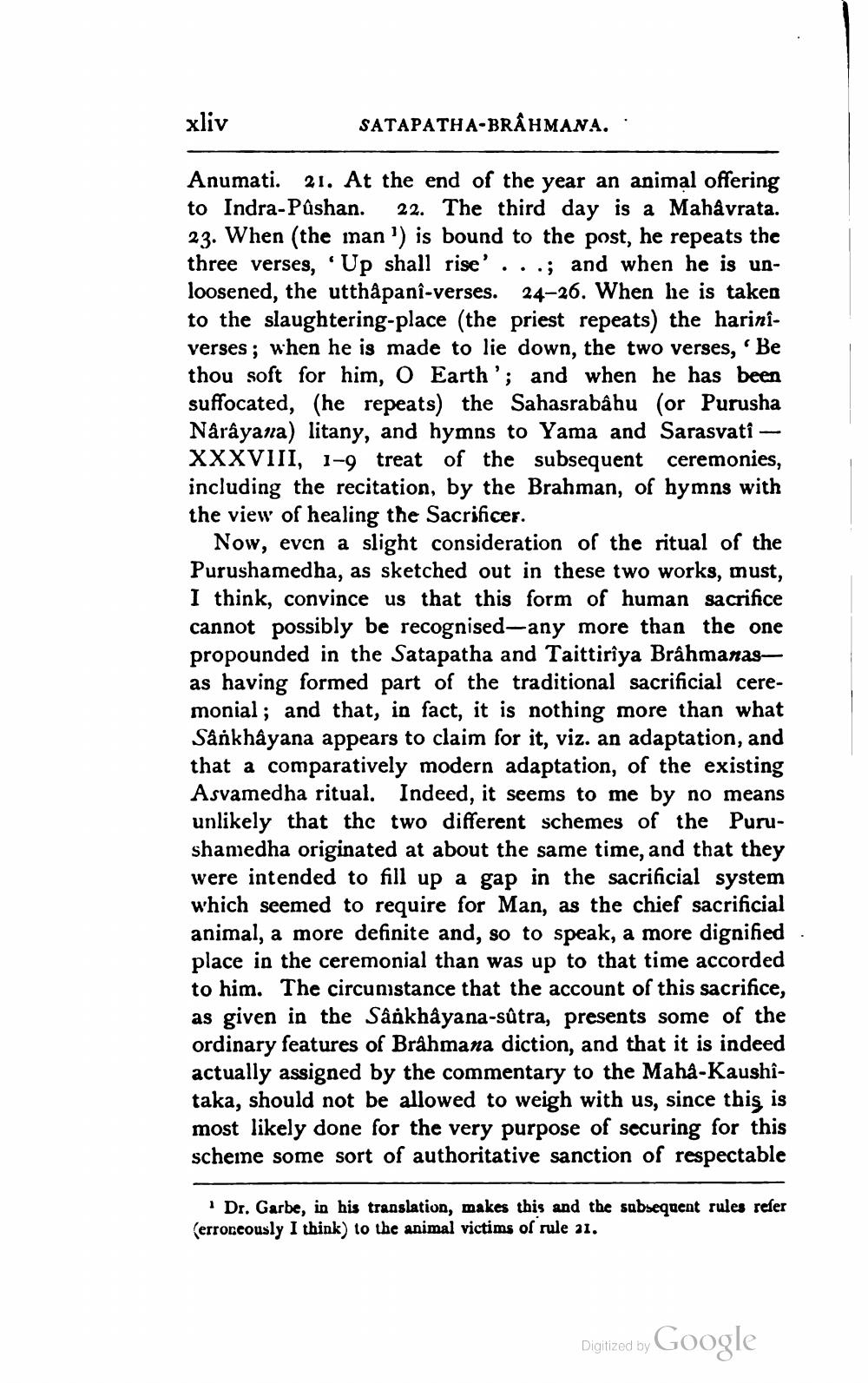________________
xliv
SATAPATHA-BRÂHMANA..
Anumati. 21. At the end of the year an animal offering to Indra-Půshan. 22. The third day is a Mahávrata. 23. When the man') is bound to the post, he repeats the three verses, 'Up shall rise' ...; and when he is unloosened, the utthapani-verses. 24-26. When he is taken to the slaughtering-place (the priest repeats) the harini. verses; when he is made to lie down, the two verses, 'Be thou soft for him, O Earth'; and when he has been suffocated, (he repeats) the Sahasrabâhu (or Purusha Narayana) litany, and hymns to Yama and Sarasvati - XXXVIII, 1-9 treat of the subsequent ceremonies, including the recitation, by the Brahman, of hymns with the view of healing the Sacrificer.
Now, even a slight consideration of the ritual of the Purushamedha, as sketched out in these two works, must, I think, convince us that this form of human sacrifice cannot possibly be recognised-any more than the one propounded in the Satapatha and Taittirîya Brahmanasas having formed part of the traditional sacrificial ceremonial; and that, in fact, it is nothing more than what Sankhayana appears to claim for it, viz. an adaptation, and that a comparatively modern adaptation, of the existing Asvamedha ritual. Indeed, it seems to me by no means unlikely that the two different schemes of the Purushamedha originated at about the same time, and that they were intended to fill up a gap in the sacrificial system which seemed to require for Man, as the chief sacrificial animal, a more definite and, so to speak, a more dignified place in the ceremonial than was up to that time accorded to him. The circunstance that the account of this sacrifice, as given in the Sankhayana-sútra, presents some of the ordinary features of Brahmana diction, and that it is indeed actually assigned by the commentary to the Maha-Kaushitaka, should not be allowed to weigh with us, since this is most likely done for the very purpose of securing for this scheme some sort of authoritative sanction of respectable
Dr. Garbe, in his translation, makes this and the subsequent rules reser (erroneously I think) to the animal victims of rule 21.
Digitized by Google




